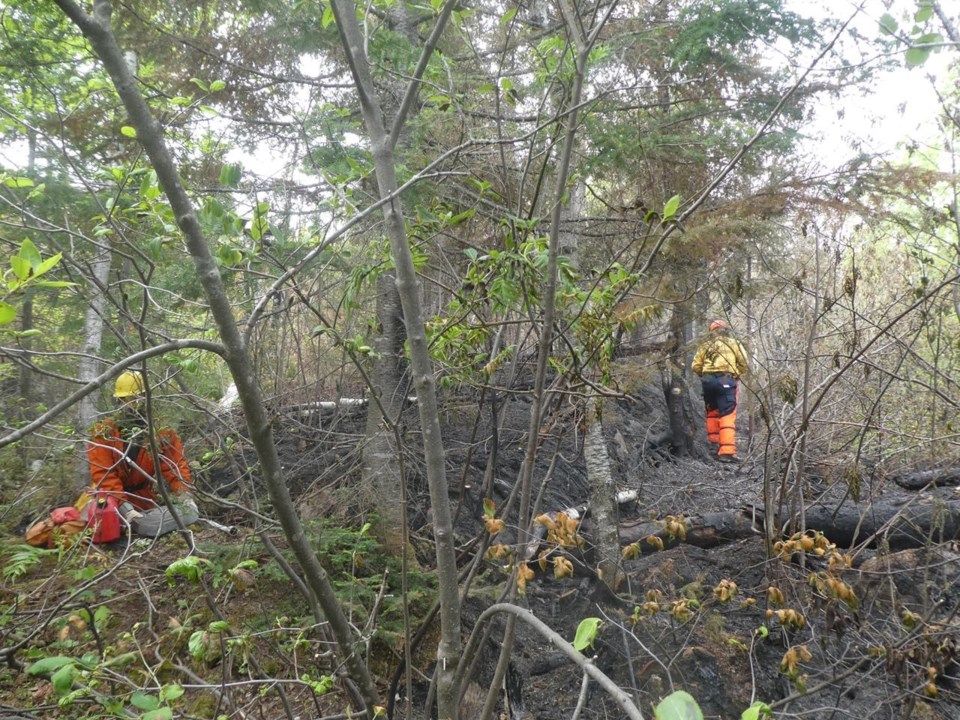Quebec was on the offensive in its battle against a record wildfire season as gusting winds fuelled growing blazes out West, and the federal government said it would provide free travel documents and visa extensions for people affected across the country.
"This now qualifies, unfortunately, as Canada's worst wildfire season of the 21st century," Emergency Preparedness Minister Bill Blair said in Ottawa.
There were 431 wildfires burning across Canada on Monday afternoon and more than 200 were listed as out of control.
About 5,000 firefighting personnel have been deployed as the country continues to face the fierce foe. Hundreds more firefighters from Chile, Costa Rica, Spain and Portugal were expected to arrive in the coming days.
The international effort has seen some success in Quebec, where thousands of people were starting to return to their homes.
"To date, we have won the fight," François Bonnarde, the province's public security minister, said.
There were more than 1,200 people fighting fires across the province, including reinforcements from New Brunswick and France.
Quebec Premier François Legault said there would likely be fewer than 4,000 evacuees by the end of the day, down from a peak on Friday of more than 13,500.
Across the country, however, nearly 32,000 people remained out of their homes because of smoke and raging wildfires.
Federal Immigration Minister Sean Fraser said some work and student visas for people affected by fires would receive extensions. Ottawa also planned to replace — for free — passports, permanent residency cards, citizenship documents and other travel documents that may have been destroyed by flames.
“Making sure these disasters don’t displace people who are on a specific kind of work permit is something I think is incredibly important," Fraser said in Ottawa.
Sixty members of the Canadian Armed Forces have been sent to Nova Scotia, where firefighters were preparing to take to the sky in a new tactic to tackle the largest wildfire recorded in that province.
Officials with the province's Department of Natural Resources are to fly in a helicopter this week over the 235-square-kilometre fire in Shelburne County and use infrared scanners to detect areas where firefighters should be dispatched.
The fire in southwest Nova Scotia was no longer growing Monday, but it was still classified as out of control.
The military was also planning to deploy more members to Alberta, where a fire west of Edmonton has been growing rapidly. Edson, a town of 8,400 people, was evacuated Friday — the second time in the last few weeks.
The wildfire continues to menace the community with crews also battling heavy, vision-obscuring smoke.
“It is still very dangerous," said Edson Mayor Kevin Zahara.
There are about 14,000 residents out of their homes due to fires throughout the northern and western areas of the province.
In B.C., hundreds more properties were ordered evacuated in the northeast Monday after high winds fanned a massive 4,660-square-kilometre wildfire — the second-largest recorded in the province.
The B.C. Wildfire Service said winds responsible for the weekendtrouble around Fort Nelson also aided firefighters on a separate blaze south of Fort St. John, which prompted an evacuation of the entire northeastern community of Tumbler Ridge.
More than 80 fires were burning in B.C., including a stubborn 2.5-square-kilometre fire in steep terrain above Highway 4 on Vancouver Island, forcing the continued closure of the main route to Port Alberni, Tofino and Ucluelet.
Convoys of trucks are scheduled twice each day to deliver gas, food and other essential goods to the cut-off communities using a rough, four-hour detour.
In northern Ontario, the number of active wildfires increased to 68 — up from 62 on Sunday.
Ontario's Ministry of Natural Resources said there was heavy smoke across the northeast due to fires in the province and in Quebec, with the smoke travelling as far north as Timmins and south past Sudbury and Parry Sound.
Even with some rain in some forecasts, officials across the country are cautioning that a long fire season is still ahead.
“We’re only two-and-a-half months into a seven-month period stretching out until the end of October," said Alberta's Public Safety and Emergency Services Minister Mike Ellis.
“This could be a long and very challenging summer.”
This report by The Canadian Press was first published June 12, 2023.
The Canadian Press



